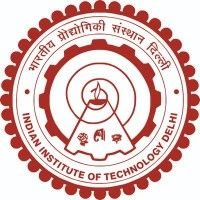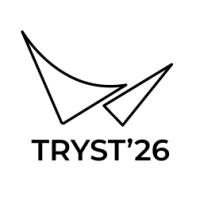Introduction: This article outlines the qualifications and responsibilities for a role focused on Generative AI and Big Data solutions on Google Cloud. It covers required and preferred qualifications, technical foundations such as LLMs and ETL, and the hands-on responsibilities: designing cloud enterprise solutions, delivering workshops, monitoring and troubleshooting applications, and advising customers to influence product roadmap.
Qualifications and technical foundations
The minimum qualifications establish a baseline: a bachelor’s degree in Computer Science or related field, or equivalent practical experience, combined with hands-on experience building data and AI solutions and working with technical customers. These fundamentals enable a practitioner to design cloud enterprise solutions and support customer projects through to completion. Fluent English is required to communicate effectively in customer-facing situations.
Preferred qualifications deepen the technical and customer-facing profile. Specific areas of preferred experience include:
- Large Language Models (LLMs): experience with LLMs is highlighted as a preferred competency, reflecting the role’s emphasis on Generative AI and agentic capabilities.
- Data pipelines, analytics and visualization: familiarity with end-to-end data flow and the ability to extract insights and present them through visualization supports solution design and customer enablement.
- Leveraging LLMs for multimodal solutions: preferred experience includes applying LLMs across text, image, video, and voice modalities, aligning with multimodal Generative AI use cases.
- Core data ETL techniques: expertise in extract-transform-load processes underpins reliable data ingestion and transformation required for AI and Big Data workloads.
- Cloud computing and data warehousing concepts: the role prefers familiarity with established Big Data frameworks and tools, explicitly listing Apache Beam, Hadoop, Spark, Pig, Hive, MapReduce, and Flume as relevant concepts and technologies to understand.
- Strong customer-facing communication skills: in addition to technical fluency, preferred qualifications call for the ability to interact effectively with customers, present complex ideas, and guide technical decision-making.
Together, the minimum and preferred qualifications create a profile capable of bridging deep technical work with customer engagement. The minimum ensures the candidate can execute; the preferred list signals readiness to tackle advanced Generative AI and Big Data scenarios at scale and across modalities.
Role responsibilities and impact
The role centers on designing and implementing Generative AI and Big Data solutions using Google Cloud products, and on converting technical capabilities into business transformation for customers. Key responsibilities include:
- Design and implementation: architect and build Generative AI and Big Data solutions on Google Cloud products, applying knowledge of LLMs, data pipelines, ETL techniques, and data warehousing concepts to produce enterprise-grade systems.
- Identifying transformation opportunities: evaluate customer environments to identify where Generative or Agentic AI can transform processes, products, or business models, leveraging experience with multimodal LLM applications.
- Supporting project completion: shepherd customer projects from design through implementation to completion, using cloud enterprise design experience and practical, hands-on skills to resolve technical challenges.
- Delivering workshops: educate customers through workshops that communicate solution approaches, demonstrate capabilities, and accelerate customer adoption of Generative AI and Big Data patterns.
- Monitoring and troubleshooting: monitor application performance in production, debug and troubleshoot product issues as they arise, and ensure solutions operate reliably and meet customer expectations.
- Trusted technical advisor: act as a technical adviser to customers, combining domain knowledge, customer-facing communication skills, and practical experience to build trust and shape technical direction.
- Influencing product roadmap: gather feedback from customer engagements and operational experience to influence product roadmap and priorities, closing the loop between customer needs and product development.
These responsibilities form a continuous cycle: qualifications enable design and implementation; implementation and workshops reveal operational experience and customer needs; monitoring and troubleshooting surface insights that inform advisory interactions and product feedback. In this way, the role integrates technical execution with strategic customer engagement, ensuring solutions are not only built but adopted, scaled, and improved over time.
Conclusion: The role requires a foundation in computer science or equivalent experience and proven ability to build data and AI solutions, with preferred expertise in LLMs, multimodal approaches, ETL, data pipelines, analytics, and Big Data frameworks. Responsibilities span design, implementation, education, monitoring, troubleshooting, and advisory work on Google Cloud. Together, these elements drive customer transformation and influence product evolution through informed feedback.










